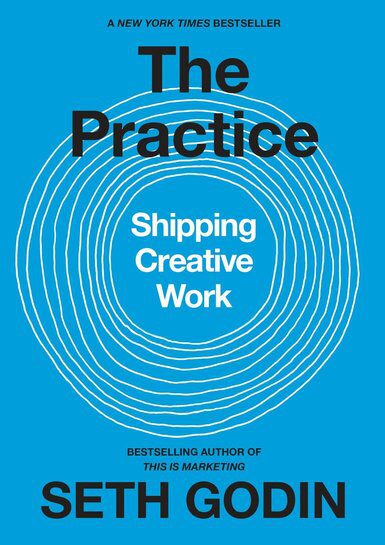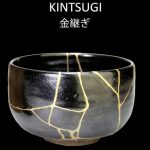We don’t ship the work because we’re creative. We’re creative because we ship the work.
The Practice is based on the Akimbo Creative Workshop pioneered by author Seth Godin. Seth insists that writer’s block is a myth, that consistency is far more important than authenticity, and that experiencing the imposter syndrome is a sign that you’re a well-adjusted human.
“The practice is there if we’re willing to sign up for it. And the practice will open the door to the change you seek to make.”
I am a super fan of Seth Godin’s work and from reading his very insightful books: Purple Cow, Unleashing the Ideavirus, Linchpin, The Dip, listening to his podcast (Akimbo), reading his blog, and his other great projects such as alt MBA. The book is a compilation of 219 nuggets for creatives and writers.
“The practice doesn’t care when you decide to become an artist. What simply matters is that you decide. Whether or not your mom is involved in the decision.”
Favorite takeaways – The Practice by Seth Godin:
The industrial economy Brainwashing
The industrial economy demands it. It prods us to consumption and obedience. We trust the system and the people we work for to give us what we need, as long as we’re willing to continue down the path they’ve set out for us. We were all brainwashed from a very early age to accept this dynamic and to be part of it.
The deal is simple: follow the steps and you’ll get the outcome the system promised you. It might not be easy, but with effort, just about anyone can do it”
So we focus on the outcome because that’s how we know we followed the steps properly. The industrial system that brainwashed us demands that we focus on outcomes to prove we followed the recipe. That priority makes sense if the reliable, predictable outcome really matters and the payoff is truly guaranteed.
The industrial system we all live in is outcome-based. It’s about guaranteed productivity in exchange for soul-numbing, predirected labor. But if we choose to look for it, there’s a different journey available to us. This is the path followed by those who seek change, who want to make things better.
Trust Your Self
At the heart of the creative’s practice is trust: the difficult journey to trust in your self , the often hidden self, the unique human each of us lives with. See the pattern, find your practice, and you can begin to live the process of making magic. Your magic. The magic that we need right now.
Learning to Juggle
“Learning requires a simple insight: catching the ball isn’t the point.”
People who fail to learn to juggle always fail because they’re lunging to catch the next ball. But once you lunge for a ball, you’re out of position for the next throw, and then the whole thing falls apart.
Practicing how to throw. Getting good at throwing. If you get good enough at throwing, the catching takes care of itself.
It turns out that all this dropping is the hardest part for someone who is learning to juggle. It makes them really uncomfortable to throw a ball and then stand there as it drops to the ground. The desire for outcome is deeply ingrained, and for some, this is the moment where they give up. They simply can’t bear a process that willingly ignores the outcome.
Our work is about throwing. The catching can take care of itself.
The Story (and the Choice)
Most of the time, the story we live by came from somewhere. It might be the way we were raised, or it could be the outcome of a series of events. Burn yourself on the stove and you might persuade yourself that you should go nowhere near a stove. Grow up in a home with low expectations and it’s possible you’ll begin to believe them. The story we tell ourselves leads to the actions we take.
If you want to change your story, change your actions first. When we choose to act a certain way, our mind can’t help but rework our narrative to make those actions become coherent. We become what we do.
The Process and the Outcome
Focusing solely on outcomes forces us to make choices that are banal, short-term, or selfish. It takes our focus away from the journey and encourages us to give up too early.
The practice of choosing creativity persists. It’s a commitment to a process, not simply the next outcome on the list. We do this work for a reason, but if we triangulate the work we do and focus only on the immediate outcome, our practice will fall apart.
Reassurance is futile—and focusing on outcomes at the expense of process is a shortcut that will destroy your work.
Start Where You Are
Identity fuels action, and action creates habits, and habits are part of a practice, and a practice is the single best way to get to where you seek to go. Before you are a “bestselling author,” you’re an author, and authors write. Before you are an “acclaimed entrepreneur,” you’re simply someone who is building something.
“I am _______ but they just don’t realize it yet” is totally different from “I’m not _______ because they didn’t tell me I was.”
Toward a Daily Practice in Service of Your Identity
“Do the work, become the artist. Instead of planning, simply become. Acting as if is how we acquire identity.”
Writing is a universal solvent for creatives. Painters, entrepreneurs, therapists, circus acts—each of us can write our story down, a permanent record of how we see the world and how we will change the world. Blog every day. It’s easy, it’s free, and it establishes your identity long before the market cares about who you are and what you do.
“Writers write. Runners run. Establish your identity by doing your work.”
“So Far” and “Not Yet”
You haven’t reached your goals (so far).
You’re not as good at your skill as you want to be (not yet).
You are struggling to find the courage to create (so far).
This is fabulous news. It’s been going on since you were a kid. Something isn’t there when you want it (or need it) but then it is. Persistent and consistent effort over time can yield results.
“So far” and “not yet” are the foundation of every successful journey.
Hoarding Is Toxic
Hoarding your voice is based on the false assumption that you need to conserve your insight and generosity or else you’ll run out of these qualities. Hoarding is a way to hide from the fear of being insufficient. Hoarding isolates you from the people who count on you and need you the most.
A scarcity mindset simply creates more scarcity, because you’re isolating yourself from the circle of people who can cheer you on and challenge you to produce more.
Worrying
Worrying is the quest for a guarantee, all so we can find the confidence to press on. It’s an endless search for a promise: the outcome will be worth the effort we put into the process. Worrying is impossible without attachment. No one worries about the weather on Saturn, because no one is counting on the weather to be a certain way.
Talent Is Not the Same as Skill
Talent is something we’re born with: it’s in our DNA, a magical alignment of gifts. But skill? Skill is earned. It’s learned and practiced and hard-won.
It’s insulting to call a professional talented. She’s skilled, first and foremost. Many people have talent, but only a few care enough to show up fully, to earn their skill. Skill is rarer than talent. Skill is earned. Skill is available to anyone who cares enough.
Sunk Costs and Your Practice
If the practice you’ve developed isn’t getting you what you are after, you can politely walk away from it. If the audience you’ve worked so hard to build trust with is making it clear that your vision doesn’t match theirs, you can move on. It’s fine to experience regret when we abandon a sunk cost. It’s a mistake to stick with one simply because we can’t bear the regret.
A Roundup of Tips and Tricks for Creators
Build streaks. Do the work every single day. Blog daily. Write daily. Ship daily. Show up daily. Find your streak and maintain it.
Talk about your streaks to keep honest.
Seek the smallest viable audience. Make it for someone, not everyone.
Avoid shortcuts. Seek the most direct path instead.
Find and embrace genre.
Seek out desirable difficulty.
Don’t talk about your dreams with people who want to protect you from heartache.
To Be Great Requires Embracing Neglect
Humans have even more trouble with superpowers than organizations do, because there’s just one of you, and one of me. That means that if you’re going to over-index for something, you’re simply going to have to under-index for something else.
Fortunately, it’s now possible to easily outsource many of the things you’re not very good at, so that you can simulate a level of sanity and professionalism to the outside world. But first, each of us must choose. Choose the skill we’re going to assert to the outside world.
Even if it comes at the cost of neglecting some of the work you used to do that, in the end, was simply a distraction.
“You have everything you need to make magic. You always have. Go make a ruckus.”
All the Best in your quest to get Better. Don’t Settle: Live with Passion.



2 Comments
Pingback: The Power of Not Yet. – Lanre Dahunsi
Pingback: 100 Books Reading Challenge 2021 | Lanre Dahunsi